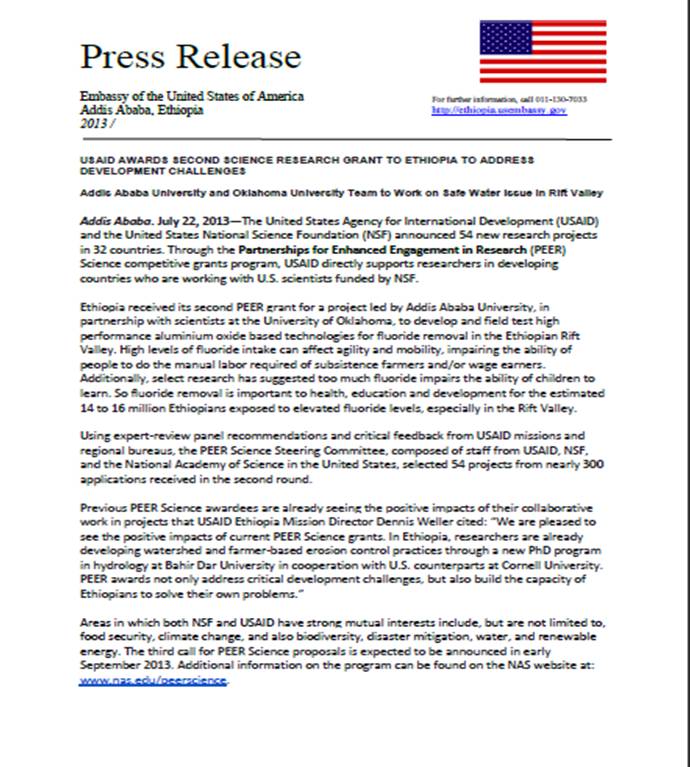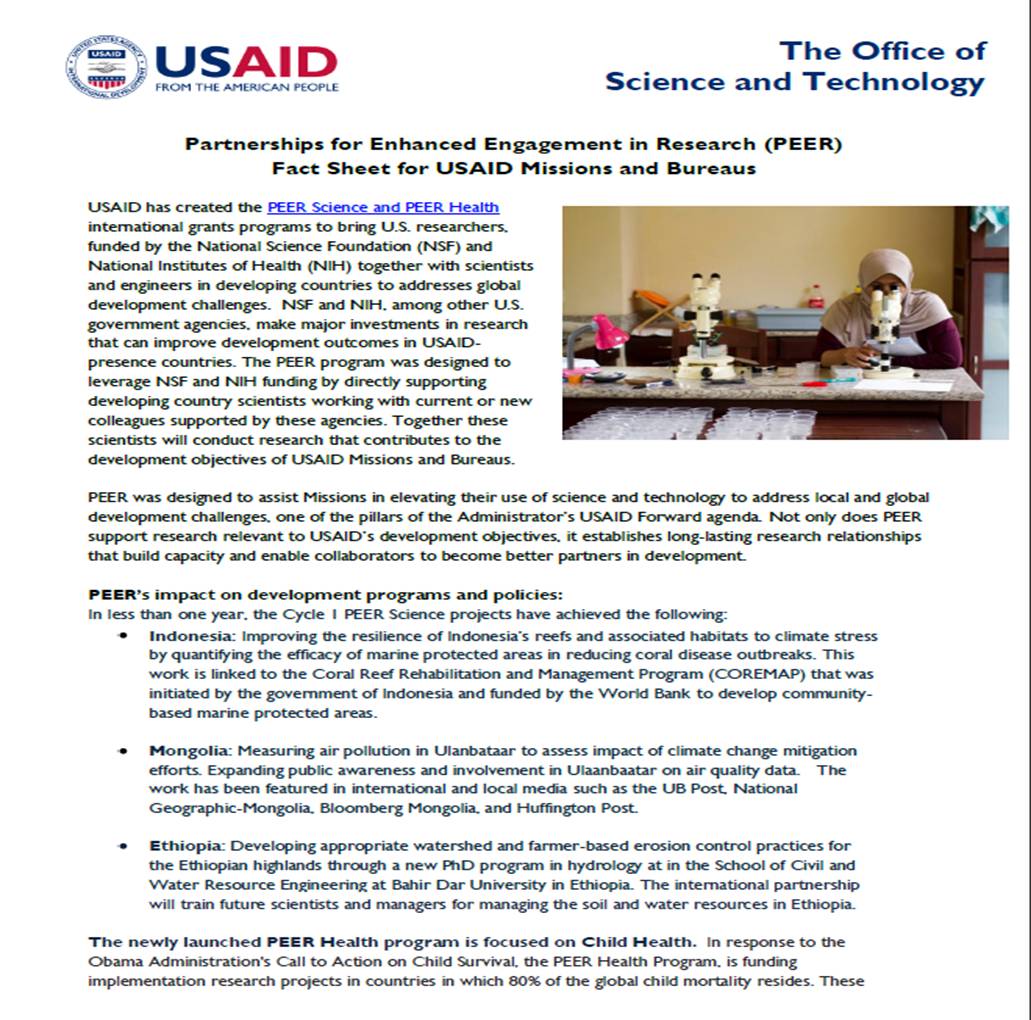Addis Ababa University and Oklahoma University Team to Work on Safe Water Issue in Rift Valley
For Immediate Release
Addis Ababa—The United States Agency for International Development (USAID) and the United States National Science Foundation (NSF) announced 54 new research projects in 32 countries. Through the Partnerships for Enhanced Engagement in Research (PEER) Science competitive grants program, USAID directly supports researchers in developing countries who are working with U.S. scientists funded by NSF.
Press Release PEER Grant 7-22-13 ![]() (pdf - 340k)
(pdf - 340k)
Ethiopia received its second PEER grant for a project led by Addis Ababa University, in partnership with scientists at the University of Oklahoma, to develop and field test high performance aluminum oxide based technologies for fluoride removal in the Ethiopian Rift Valley. High levels of fluoride intake can affect agility and mobility, impairing the ability of people to do the manual labor required of subsistence farmers and/or wage earners. Additionally, select research has suggested too much fluoride impairs the ability of children to learn. So fluoride removal is important to health, education and development for the estimated 14 to 16 million Ethiopians exposed to elevated fluoride levels, especially in the Rift Valley.
Using expert-review panel recommendations and critical feedback from USAID missions and regional bureaus, the PEER Science Steering Committee, composed of staff from USAID, NSF, and the National Academy of Science in the United States, selected 54 projects from nearly 300 applications received in the second round.
Previous PEER Science awardees are already seeing the positive impacts of their collaborative work in projects that USAID Ethiopia Mission Director Dennis Weller cited: “We are pleased to see the positive impacts of current PEER Science grants. In Ethiopia, researchers are already developing watershed and farmer-based erosion control practices through a new PhD program in hydrology at Bahir Dar University in cooperation with U.S. counterparts at Cornell University. PEER awards not only address critical development challenges, but also build the capacity of Ethiopians to solve their own problems.”
PEER Grant Fact Sheet ![]() (pdf - 320k)
(pdf - 320k)
Areas in which both NSF and USAID have strong mutual interests include, but are not limited to, food security, climate change, and also biodiversity, disaster mitigation, water, and renewable energy. The third call for PEER Science proposals is expected to be announced in early September 2013. Additional information on the program can be found on the NAS website at: www.nas.edu/peerscience.









Comment
Make a general inquiry or suggest an improvement.